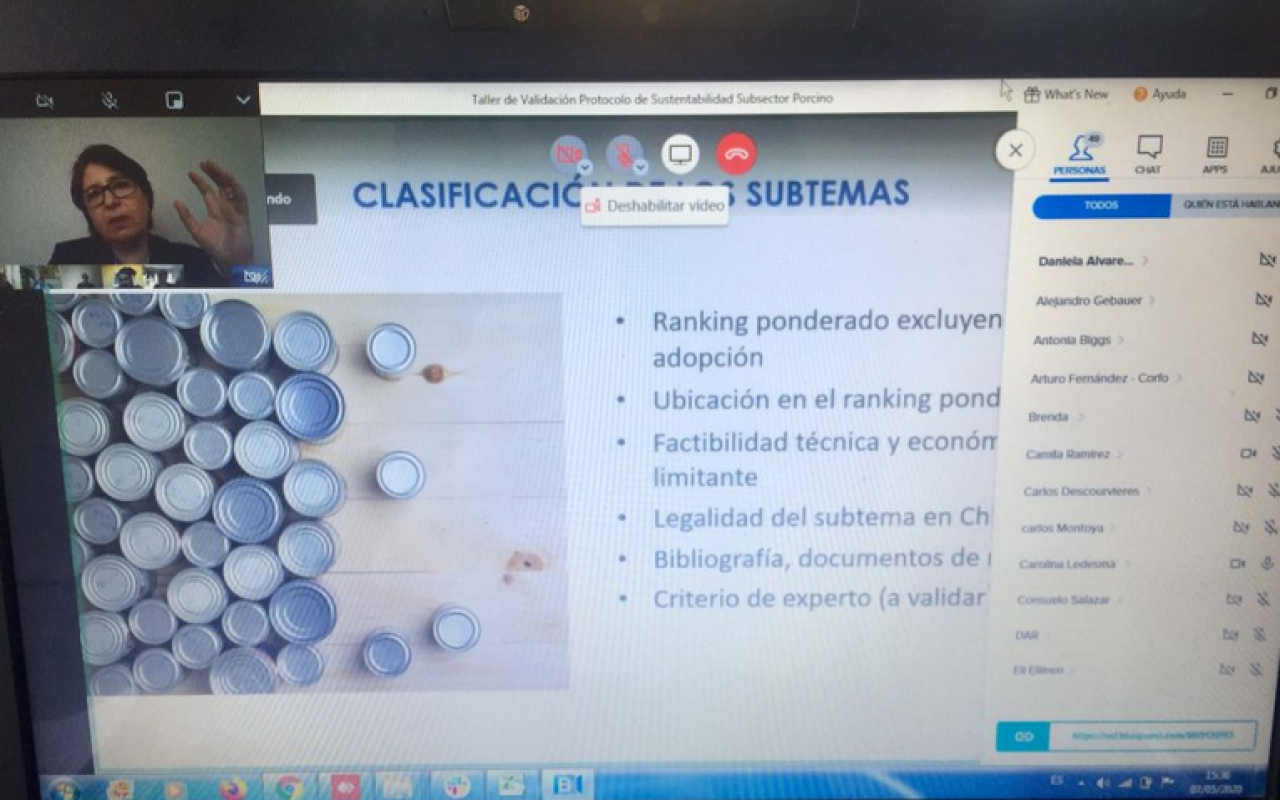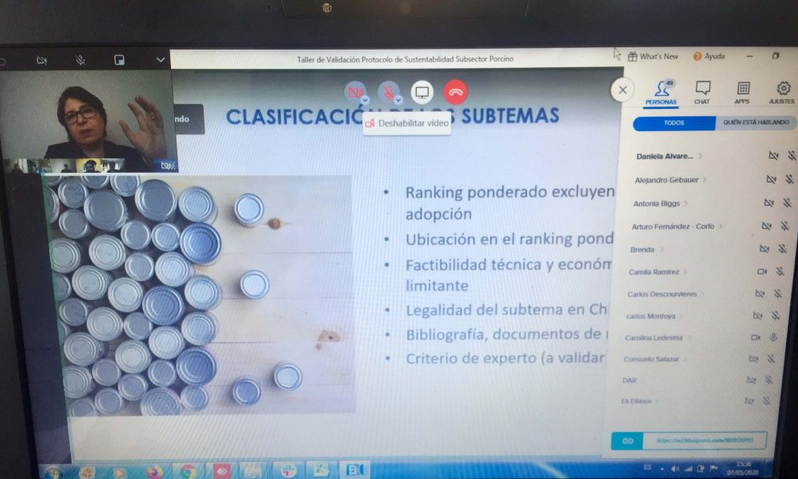
Successful workshop to validate a standard for Chilean pork
A session to validate the sustainability standard for the Chilean pork sector took place on Thursday, May 7th, as part of the Sustainability Program for the Agri-Food Sector that began in early 2019. The program is led by the Office of Agricultural Research and Policies (ODEPA) in alliance with the Chilean Meat Exporters’ Association (ChileCarne), […]

A session to validate the sustainability standard for the Chilean pork sector took place on Thursday, May 7th, as part of the Sustainability Program for the Agri-Food Sector that began in early 2019. The program is led by the Office of Agricultural Research and Policies (ODEPA) in alliance with the Chilean Meat Exporters’ Association (ChileCarne), the Pork Producers Trade Association, (ASPROCER), and the Dairy Consortium, with the support of the Agency for Sustainability and Climate Change (ASCC).
This program seeks to support Chile’s positioning as a sustainable agri-food power in production by developing sustainability standards for the various Chilean agri-food sectors and linking these actions to the fulfillment of the Sustainable Development Goals. To date, the standards for the three subsectors covered by the project are being developed, and it is expected to include new sectors such as the fruit, wine, and olive industries in the coming months.
The first phase included the preparation of a methodological guide to develop standards that could be uploaded to the Standards Map platform “that allows the creation of standards for various sectors and for each producer to be able to self-assess, manage, monitor indicators, etc.,” says Daniela Álvarez, ChileCarne’s Sustainability Chief.
The validation workshop was part of the development process of the standard for pork production. It was attended by 53 participants, mainly producers, consultants, representatives from laboratories and unions to validate the topics being addressed by the standard, which was developed in collaboration with technical officers from companies and the consulting firm NSF International.
“Due to the variety of topics being covered, we decided to start with farms and production this time. The participants discussed the topics to be included and their level of detail. Finally, it was agreed that 60% of the standard for pork will focus on the environmental-quality component, followed by ethics, management, and economy (approximately 15% on each component),” explained Daniela Álvarez.
She concluded that “we believe this is an excellent tool to move towards the use of this platform for oversight, monitoring, and project control in general, with the involvement of third parties, as we build the necessary trust.”
